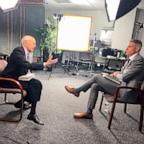More Crime, More Homeless, Less Money
Cities struggle with the consequences of the foreclosure crisis.
March 12, 2008— -- The mortgage foreclosure crisis has caused a drop in cities' revenues, a spike in crime, more homelessness and an increase in vacant properties, a survey of elected local officials out today shows.
About two-thirds of 211 officials surveyed by the National League of Cities reported an increase in foreclosures in their cities in the past year, according to the online and e-mail questionnaire. A third of them reported a drop in revenues and an increase in abandoned and vacant properties and urban blight.
"There's a reduction in revenues at the same time that more services are needed," says Cynthia McCollum, president of the National League of Cities and councilwoman in Madison, Ala., a suburb of Huntsville. "Because of foreclosures, people are stealing, crime is on the rise and we don't have more money for cops on the street."
More than a fifth of city officials responding said homelessness and the need for temporary and emergency housing increased in the past year.
The ills of foreclosures are dominating the agenda of the league's meeting with congressional lawmakers in Washington, D.C., this week to secure federal funding for local initiatives.
"The American dream for individuals has now become the nightmare for cities," says James Mitchell, a Charlotte councilman and head of the group's National Black Caucus of Local Elected Officials.
Foreclosed homes are the target of vandalism, he says, and there's been an increase in police calls.
In Peachtree Hills, one of the many neighborhoods of starter homes that sprouted around Charlotte this decade, 115 of the 123 homes are in foreclosure, Mitchell says.
"The 12 residents left there can't sell their homes and now their property values have decreased," Mitchell says. "It's starting to be a symbol of what we don't want to happen to Charlotte."
Many of the buyers were African-Americans who were enticed by zero-down mortgages on moderately priced homes. The survey shows that lower-income families, single parents, seniors and people of color are disproportionately affected by the housing crisis.




